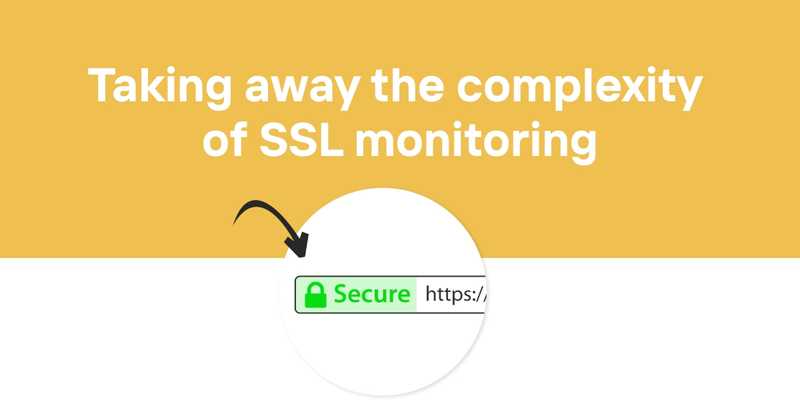SSL Certificates: Unraveling the Digital Security Blanket
Picture this: You're cozied up on your couch, sipping your favorite beverage, and browsing the web. Suddenly, a big red warning pops up on your screen: "Your connection is not private." Talk about a mood killer, right? That's the digital equivalent of walking into a store and finding the door wide open, the cash register unattended, and a sign that says, "We pinky promise your credit card info is safe with us!" Not exactly confidence-inspiring, is it?
Welcome to the wild world of SSL certificates, folks. They're the unsung heroes of the internet, the digital bouncers keeping the bad guys out of our online parties. But like that friend who always forgets their keys, sometimes these certificates can cause more headaches than they prevent. So, buckle up, buttercup - we're about to dive into the thick of it.
Table of Contents
- What the heck is an SSL certificate anyway?
- The lifecycle of an SSL certificate: It's not eternal, folks
- When good certificates go bad: The perils of expiration
- The "oops" moment: What happens when your SSL cert expires
- Keeping your digital ducks in a row: How to avoid SSL expiration
- Renewal time: Don't let it sneak up on you
- The nitty-gritty: Different types of SSL certificates
- SSL certificate monitoring: Because who has time to watch a calendar?
- The human element: Why we're all prone to SSL slip-ups
- Beyond the basics: Advanced SSL certificate management
- The future of web security: Where do we go from here?
- Wrapping it up: Why Odown.io is your new best friend
What the heck is an SSL certificate anyway?
Let's start with the basics, shall we? SSL stands for Secure Sockets Layer. (Try saying that five times fast after a couple of margaritas.) In simpler terms, it's like a digital ID card for websites. When you visit a site with a valid SSL certificate, your browser and the website do a secret handshake. This handshake ensures that any data passed between you and the site is encrypted, keeping nosy parkers from eavesdropping on your online activities.
But here's the kicker - SSL certificates aren't just some set-it-and-forget-it deal. They have expiration dates, just like that carton of milk in your fridge. And when they expire? Well, that's when things can get messy.
The lifecycle of an SSL certificate: It's not eternal, folks
Now, you might be thinking, "Why the heck do these things expire? Can't we just make them last forever?" Oh, sweet summer child. If only it were that simple.
SSL certificates have a limited lifespan for a few reasons:
-
Security updates: The internet is like a battlefield, with hackers constantly developing new ways to break in. Regular certificate renewals ensure websites are using the latest security protocols.
-
Verification: Certificate Authorities (CAs) want to make sure the person or organization behind a website is still legit. It's like renewing your driver's license - they want to make sure you're still you.
-
Key rotation: Changing encryption keys periodically makes it harder for the bad guys to crack the code.
Currently, most SSL certificates last for about 13 months. But hold onto your hats, folks - there's talk of reducing that to just 90 days in the near future. (More on that later.)
When good certificates go bad: The perils of expiration
So, what happens when an SSL certificate expires? It's not pretty, I'll tell you that much. Here's a rundown of the potential fallout:
-
Trust issues: Browsers will show warnings to visitors, basically saying, "Enter at your own risk, buddy." This is about as welcoming as a 'Beware of Dog' sign.
-
Traffic nosedive: Most users will high-tail it out of there faster than you can say "expired certificate." Can you blame them?
-
SEO slump: Search engines don't like insecure sites. Your rankings could take a hit faster than a rookie boxer in a heavyweight match.
-
Data vulnerability: Without proper encryption, sensitive information is up for grabs. It's like leaving your diary open on a park bench.
-
Compliance complications: Depending on your industry, an expired SSL certificate could land you in hot water with regulators. And trust me, that's not a hot tub you want to soak in.
The "oops" moment: What happens when your SSL cert expires
Picture this: It's a regular Tuesday morning. You're sipping your coffee, scrolling through your emails, when suddenly your phone starts blowing up with notifications. Your website is down. Customers are complaining. Your boss is breathing down your neck. What gives?
Yep, you guessed it - your SSL certificate expired.
Here's what's happening behind the scenes:
- The browser tries to establish a secure connection with your website.
- It checks the SSL certificate and sees it's expired.
- The browser throws up its hands and says, "Nope, not dealing with this."
- Your visitors get that scary "Your connection is not private" message.
And just like that, your perfectly functioning website becomes about as useful as a chocolate teapot.
But wait, it gets worse. Remember those compliance issues I mentioned? If you're handling sensitive data (think e-commerce, healthcare, finance), an expired SSL certificate could mean you're violating industry regulations. That's the kind of mistake that can cost big bucks in fines and lost business.
Keeping your digital ducks in a row: How to avoid SSL expiration
Alright, enough with the doom and gloom. Let's talk solutions. How can you avoid the SSL expiration apocalypse? Here are some tips:
-
Set reminders: I know, I know, it sounds obvious. But you'd be surprised how many folks forget. Set multiple reminders - 90 days, 60 days, 30 days before expiration. Heck, set one for every day of the last week if you have to.
-
Automate, automate, automate: There are tools out there that can handle certificate renewal automatically. Use them. Your future self will thank you.
-
Centralize management: If you're dealing with multiple certificates (and let's face it, who isn't these days?), use a centralized management system. It's like having a personal assistant for your SSL certs.
-
Stay informed: Keep an eye on industry news. Changes in SSL standards can sneak up on you if you're not paying attention.
-
Have a backup plan: Things happen. Have a process in place for quickly replacing an expired certificate if the worst happens.
Remember, staying on top of your SSL certificates is like flossing - it's not the most exciting task, but ignore it at your peril.
Renewal time: Don't let it sneak up on you
Okay, so your certificate is about to expire. What now? Here's a step-by-step guide to renewal:
-
Generate a new Certificate Signing Request (CSR): This is like filling out an application for a new certificate.
-
Submit the CSR to your Certificate Authority (CA): They'll verify your information and issue a new certificate.
-
Install the new certificate: This usually involves updating your web server configuration.
-
Test, test, test: Make sure everything's working correctly. Check different browsers, devices, the works.
-
Update your records: Note the new expiration date and set those reminders we talked about earlier.
Sounds simple enough, right? Well, it can be if you're dealing with one website. But if you're managing dozens or hundreds of sites? That's when things can get... interesting.
The nitty-gritty: Different types of SSL certificates
Not all SSL certificates are created equal. There are different types for different needs:
-
Domain Validated (DV) Certificates: These are the quick and dirty option. The CA just checks that you control the domain. They're fast to get but offer the lowest level of trust.
-
Organization Validated (OV) Certificates: A step up from DV. The CA verifies some information about your organization. These offer a higher level of trust.
-
Extended Validation (EV) Certificates: The gold standard. These require rigorous verification of your organization's identity. They're the ones that make the browser address bar turn green.
-
Wildcard Certificates: These cover your main domain and all its subdomains. Handy if you have lots of subdomains, but be careful - if it's compromised, all your subdomains are at risk.
-
Multi-Domain Certificates: Also known as Subject Alternative Name (SAN) certificates. These let you secure multiple domains with a single certificate.
Choosing the right type depends on your needs, budget, and how much you enjoy paperwork. (Spoiler alert: EV certificates involve a lot of paperwork.)
SSL certificate monitoring: Because who has time to watch a calendar?
Let's face it - manually keeping track of SSL certificates is about as fun as watching paint dry. That's where SSL certificate monitoring tools come in handy. These nifty little helpers can:
- Keep track of all your certificates in one place
- Alert you well before a certificate is due to expire
- Monitor for other issues, like misconfiguration or weak encryption
Some even integrate with your existing workflows, automatically creating tickets or sending notifications to the right people.
But here's the thing - not all monitoring tools are created equal. Some are about as useful as a screen door on a submarine. When choosing a monitoring tool, look for:
- Accuracy: False positives are annoying. False negatives can be catastrophic.
- Scalability: Can it handle all your domains and subdomains?
- Integration: Does it play nice with your other tools?
- Reporting: Can it give you the big picture when you need it?
Remember, a good monitoring tool is like a good assistant - it should make your life easier, not give you more headaches.
The human element: Why we're all prone to SSL slip-ups
Here's a hard truth: most SSL certificate expirations are due to human error. We're all fallible creatures, after all. Maybe you forgot to set a reminder. Maybe the reminder went to an email address that's no longer monitored. Maybe you thought Bob from IT was handling it, but Bob thought Alice from DevOps was on it.
The point is, stuff happens. And when you're juggling a million other tasks, it's easy for something like an SSL certificate renewal to slip through the cracks.
That's why it's crucial to have systems and processes in place. Automate what you can. Double-check what you can't automate. And for heaven's sake, make sure more than one person knows how to handle certificate renewals. (Sorry, Bob, but we can't put all our eggs in your basket.)
Beyond the basics: Advanced SSL certificate management
For those of you who like to dive deep into the technical weeds (and I know you're out there), let's talk about some advanced SSL certificate management techniques:
-
Certificate Transparency (CT) logs: These public logs record all certificates as they're issued. Monitoring CT logs can help you catch unauthorized certificates for your domains.
-
Certificate Pinning: This technique lets you specify which certificate or public key a client should accept from a server. It's like telling your browser, "Only trust this specific ID card."
-
OCSP Stapling: This improves performance by allowing the server to provide the certificate status along with the certificate itself, reducing the number of requests the client needs to make.
-
Short-lived certificates: Some argue that using certificates with very short lifespans (like a few days) and automating their renewal can improve security. It's an interesting concept, but it requires robust automation.
-
Multi-factor authentication for certificate management: Because if a bad guy gets access to your certificate management system, you're in for a world of hurt.
Remember, with great power comes great responsibility. These advanced techniques can enhance your security, but they also add complexity. Make sure you understand the implications before implementing them.
The future of web security: Where do we go from here?
The world of SSL certificates is always evolving. Here are some trends to keep an eye on:
-
Shorter certificate lifespans: As I mentioned earlier, there's talk of reducing maximum certificate lifespans to 90 days. This means more frequent renewals, but also potentially better security.
-
Increased automation: With shorter lifespans, manual management becomes impractical. Expect to see more robust, user-friendly automation tools.
-
Quantum-resistant cryptography: As quantum computers become more powerful, we'll need new encryption methods that can withstand quantum attacks.
-
Broader adoption of HTTPS: With initiatives like Let's Encrypt making SSL certificates more accessible, we're moving towards a future where all web traffic is encrypted.
-
Enhanced validation techniques: As cyber threats evolve, expect to see more sophisticated methods for validating certificate requests.
The takeaway? Stay informed, stay adaptable, and for the love of all that is holy, keep your certificates up to date.
Wrapping it up: Why Odown.io is your new best friend
Alright, we've covered a lot of ground here. SSL certificates are crucial for web security, but managing them can be a real pain in the you-know-what. That's where a tool like Odown.io comes in handy.
Odown.io isn't just about keeping an eye on your website's uptime (though it does that too). It also offers SSL certificate monitoring, so you can kiss those "Oops, my certificate expired" moments goodbye.
But wait, there's more! (I've always wanted to say that.) Odown.io also provides public and private status pages. So when something does go wrong (because let's face it, something always does eventually), you can keep your users in the loop.
Here's why Odown.io is worth considering:
- It's built for developers, by developers. We speak your language.
- It handles both website and API monitoring. Because your APIs need love too.
- The SSL certificate monitoring is top-notch. No more surprise expirations.
- The status pages are customizable and easy to set up. Your users will thank you.
- It integrates with tools you're already using, making your life easier.
Look, I'm not saying Odown.io will solve all your problems. It won't do your laundry or walk your dog. But when it comes to keeping your websites secure and your users informed, it's pretty darn good.
So there you have it, folks. SSL certificates: they're important, they're finicky, and they require attention. But with the right tools and processes in place, you can tame the SSL beast and keep your digital world running smoothly. Now if you'll excuse me, I need to go check on my own SSL certificates. It's been a while...



